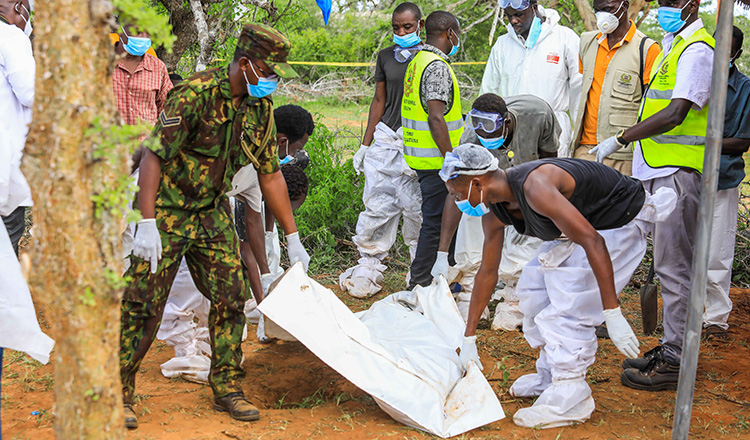The Shakahola tragedy, one of Kenya’s most devastating episodes linked to religious extremism, has left over 600 individuals unaccounted for, while 448 deaths have been confirmed by the Kenyan National Commission on Human Rights (KNCHR). The victims, manipulated by rogue cult leader Paul Nthenge Mackenzie, suffered starvation, abuse, and human rights violations under the guise of religious devotion in Kilifi County.
KNCHR’s Mashaka ya Shakahola report reveals that less than 10% of the exhumed bodies have been identified and returned to their families for burial in accordance with their cultural and religious traditions. “This tragedy is a stark reminder that freedom must not be a license for abuse,” remarked KNCHR Chairperson Roseline Odede.
Constitutional Freedoms and Their Limits
While Kenya’s Constitution protects freedom of religion and belief, KNCHR noted that this right is not absolute and must be restricted when public safety, morals, or the freedoms of others are jeopardized. The failure to enforce these limits, the commission stated, contributed to the catastrophic outcomes of the Shakahola incident.
Systemic Failures Highlighted
The tragedy has exposed systemic failures, including gaps in crisis management resources and a lack of regulatory oversight of religious organizations. KNCHR called for the full operationalization of the National Coroners Service Act 2017 to ensure independent and transparent investigations into cases of mass deaths. The commission also urged Parliament to expedite the enactment of the Religious Organizations Bill 2023 to prevent extremism and safeguard the public.
A Call for Action
Beyond legal reforms, KNCHR stressed the importance of addressing societal vulnerabilities that allowed such exploitation. “This is a matter of national urgency. We cannot afford to let such a tragedy repeat itself,” the report declared.
A Grim Wake-Up Call
The Shakahola tragedy has revealed the devastating consequences of unchecked religious extremism. Victims endured unimaginable suffering, with many succumbing to starvation and abuse. Odede emphasized that this national crisis underscores the need for justice, accountability, and the prioritization of human dignity in governance.
Kenya must now ensure such atrocities are never repeated while balancing constitutional freedoms with public safety.

